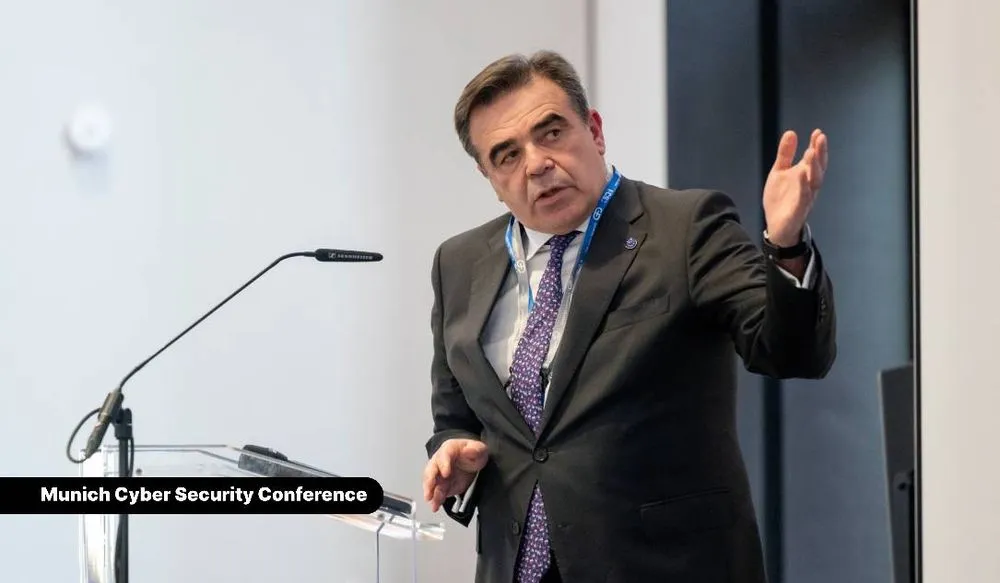Russian interference ‘poses a clear threat’ to European elections, warns European Commission VP
MUNICH, GERMANY — Russian interference in the European Union’s forthcoming parliamentary elections could endanger society, Margaritis Schinas, the vice-president of the European Commission, warned Thursday.
Delivering an opening keynote at the Munich Cyber Security Conference, Schinas stressed the need to “keep a close eye” on attempts to sway opinions ahead of the European elections to be held in June.
“We cannot simply afford as defenders of free societies, of free citizens and free people, that foreign malign actors manipulate the opinions of our citizens and plant the seeds of division and hate at the heart of our democracies,” he said.
“As you probably know, the European election is the second most numerous electoral process on the planet after the Indian election,” Schinas told attendees. “We need to keep a very close eye on foreign information manipulation and interference. This is about our democracy, about our values, about our way of life, what we represent as Europeans in today’s world.”
In particular Schinas cited “Russia’s strategic and coordinated use of foreign information manipulation and interference in the phase before its aggression of Ukraine” as evidence of the "clear threat to our own security.”
This activity “endangers the functioning of our society and challenges directly our democratic ethos,” he said.
Earlier this year, Christopher Wray, the director of the Federal Bureau of Investigation, warned that more counties have been engaging in influence operations in attempts to disrupt national elections.
The social media company Meta had also warned in November that it had observed foreign interference groups attempting to build and reach online audiences ahead of a number of significant elections this year.
READ MORE: Munich Cyber Security Conference 2024 Live Updates
Alexander Martin
is the UK Editor for Recorded Future News. He was previously a technology reporter for Sky News and a fellow at the European Cyber Conflict Research Initiative, now Virtual Routes. He can be reached securely using Signal on: AlexanderMartin.79



